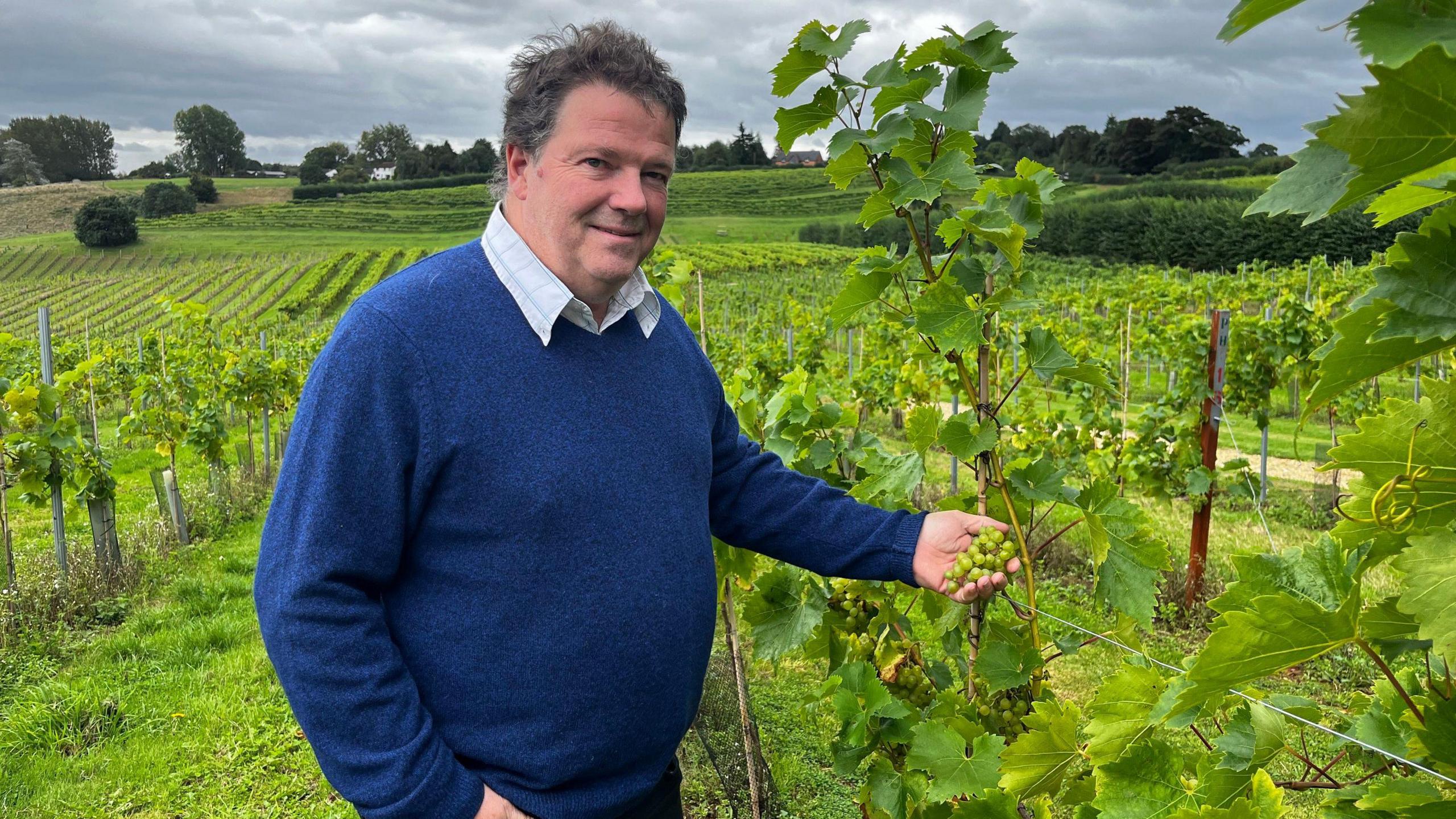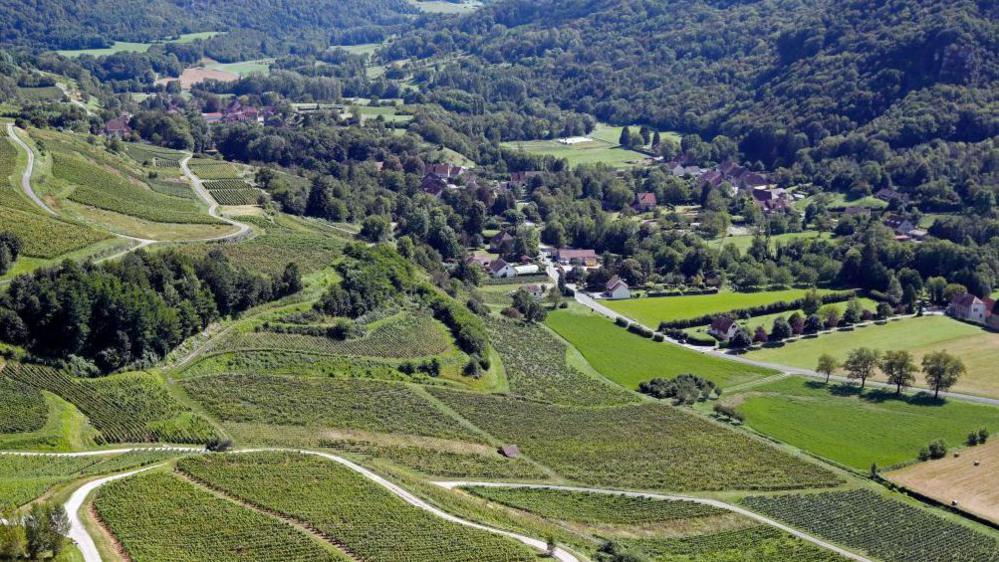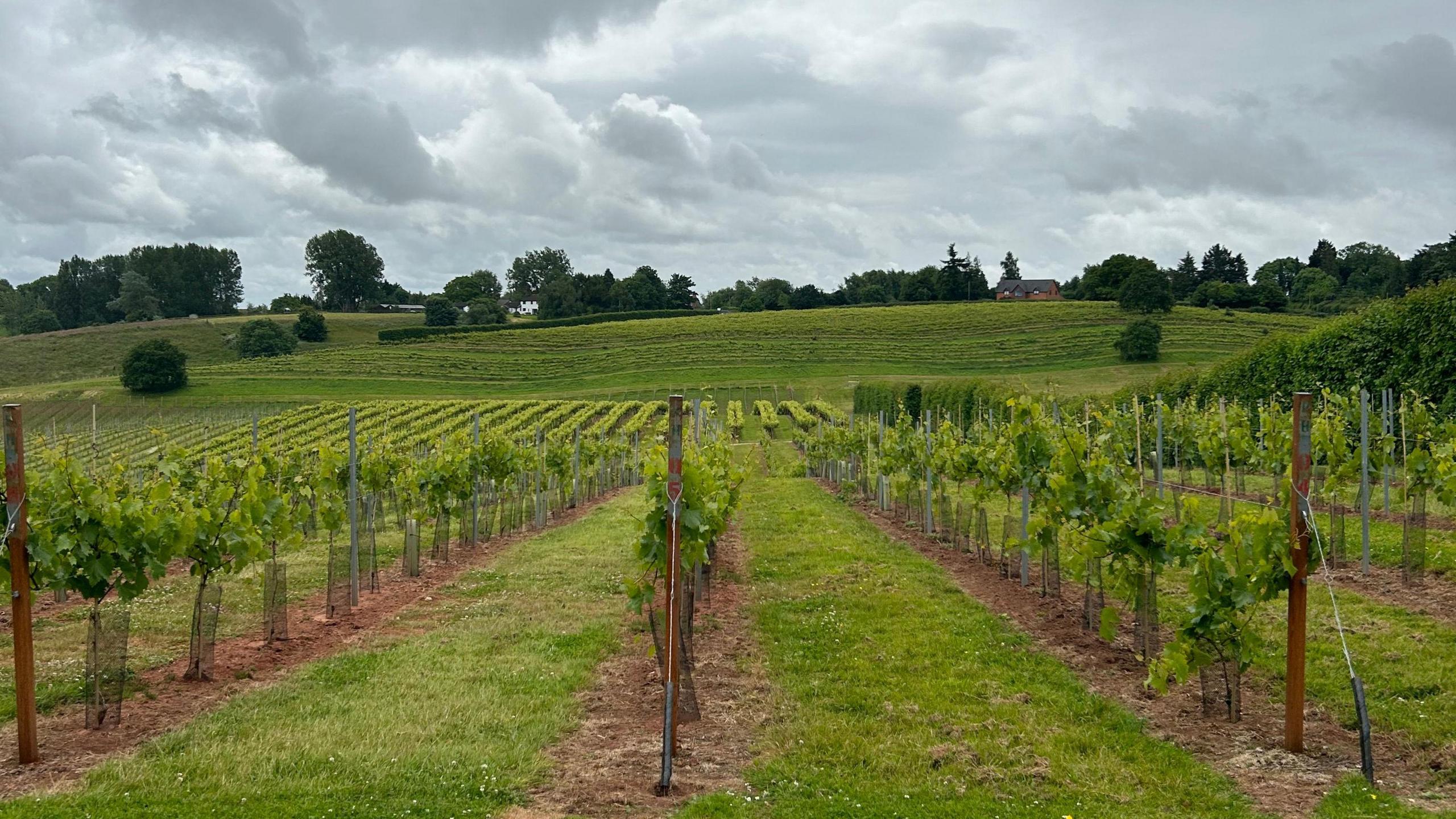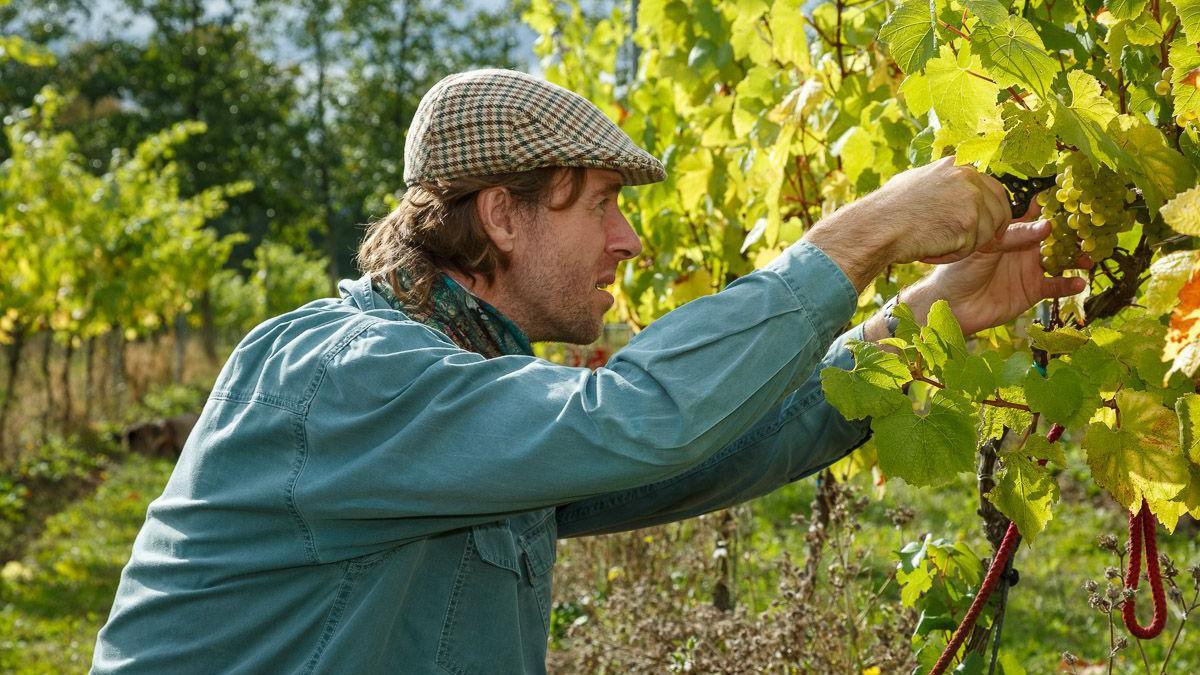Wet weather 'a challenge' for county's winemakers

Three Choirs Vineyard is one of several in Gloucestershire that has battled against less-than-ideal weather conditions
- Published
Winemakers say they are struggling to maintain production levels due to difficult weather conditions.
Vineyards across Gloucestershire have said the wet but warm weather has been prime climate for mildews and fungal diseases on their crops.
Martin Fowke, winemaking director at Three Choirs Vineyard in Newent, said: "Every season seems to bring its challenges, but I can't remember anything quite comparable to this."
However, he added that grapes failing to grow to their full size could "give a greater concentration of flavour".
Winemakers in the county say they have been forced to take precautions to protect their vines.
"We have never experienced the combination of warm temperatures combined with lots of rain and a dramatic drop in sunlight hours for such a prolonged period," Mr Fowke said.
"This created the perfect environment for mildews and so we have had to work hard to keep the crop clean. It has been a real challenge to keep the grapes on the vine to get us through to the harvesting stage."

Vineyards across Europe are also struggling due to this year's difficult growing season, with sales in France's Jura region expected to fall sharply
Larkhill Vineyard in Tetbury has faced similar issues, with the wet and windy flowering period in June leading to "an uneven fruit set and a reduced crop".
The unpredictable weather this summer slowed the ripening process, with mildew "adversely affecting the yield and quality of the crop".
"The next few weeks will have an enormous impact on the grapes reaching a suitable sugar level," a spokesperson said.
Harvest season in England generally takes place between late September and mid October.
Poulton Hill Estate in Cirencester said the vines woke up "three weeks earlier than previous years" due to a very mild winter, meaning they had an increased "frost watch" period.
"Unfortunately, we have lost all 19 rows of our Bacchus crop to disease, due to the conditions this season," a spokesperson said.
"Bacchus has been particularly badly affected in this region this year.
"However, our Phoenix, Seyval Blanc, Rondo and Regent grapes are looking fantastic.”
Get in touch
Tell us which stories we should cover in Gloucestershire
Follow BBC Gloucestershire on Facebook, external, X, external, and Instagram, external. Send your story ideas to us on email or via WhatsApp on 0800 313 4630.
Related topics
- Published9 September 2024

- Published19 June 2024

- Published7 June 2024
